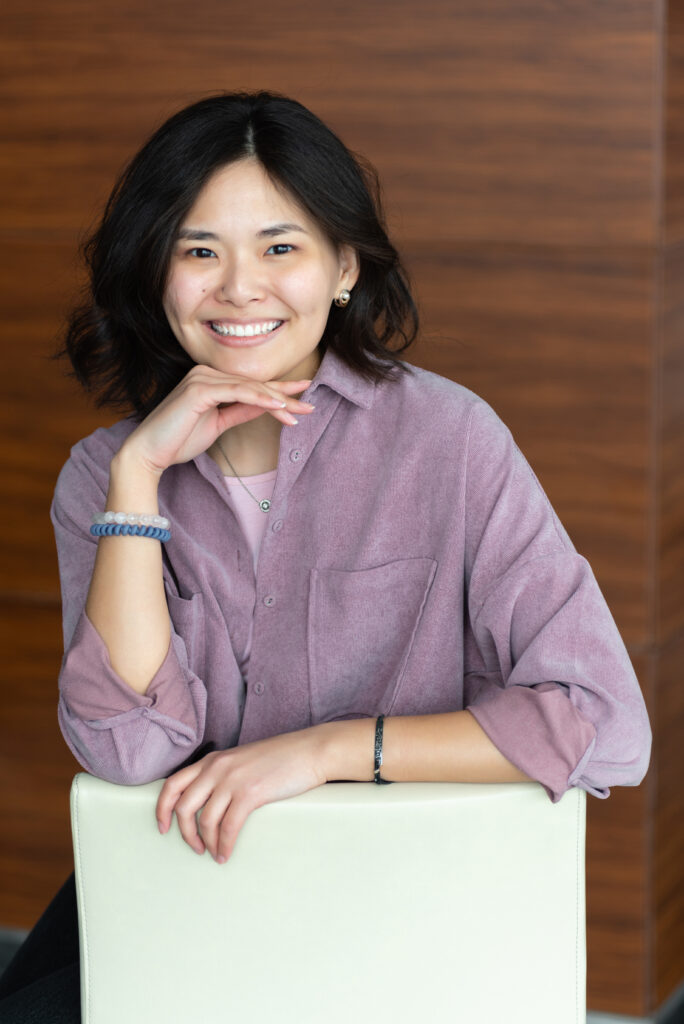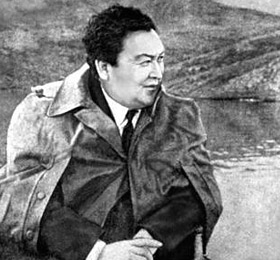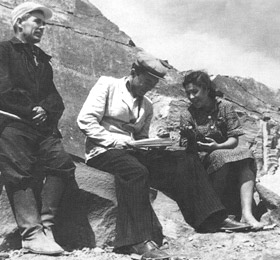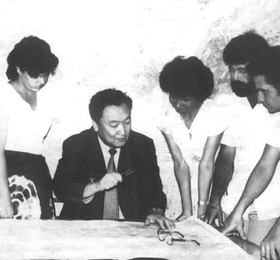Yerkezhan Amerzhanova (Kalikanova)
Specialization: molecular medicine. Internship: European Molecular Biology Laboratory, Germany.
 Yerkezhan, 26, is from Ust-Kamenogorsk, she graduated from the School of Medicine of the Nazarbayev University. From a little girl who once took care of the garden and ran in the sunflower fields, she grew up into a persistent, purposeful person. Only after the third attempt our heroine achieved victory in the competition for the research internships of the Shakhmardan Yessenov Foundation. And now she is waiting for her doctoral program in one of the most prestigious universities in the world – ETH Zurich – to begin.
Yerkezhan, 26, is from Ust-Kamenogorsk, she graduated from the School of Medicine of the Nazarbayev University. From a little girl who once took care of the garden and ran in the sunflower fields, she grew up into a persistent, purposeful person. Only after the third attempt our heroine achieved victory in the competition for the research internships of the Shakhmardan Yessenov Foundation. And now she is waiting for her doctoral program in one of the most prestigious universities in the world – ETH Zurich – to begin.
How did you choose molecular medicine?
I became interested in research activities, but had experience only in synthetic biology (ecology and microbiology). I heard about the then new master’s degree program in the field of molecular medicine, and decided to enroll.
How did you find out about the grant competition of the Yessenov Foundation?
From my friends and decided to try after my second year. But I lacked experience and motivation. I didn’t pass then, but I didn’t give up and tried again after the 4th year. I made it to the final, I was close to winning, but the competition was tough, and I was worried: therefore I lost again. Nevertheless, I did not despair, and while studying for a master’s degree, I applied for the third time. At the business game in the final, I was completely immersed in the process, I was myself, and it was insanely interesting to me. So I won.
What does a person need to win?
Understanding why you need this grant. It also helped that I didn’t give up and learned to accept refusals, use experience from them and try again. You need to stock up on energy and self-confidence, be yourself and enjoy the process. It sounds corny, but not many people can actually do it.
How did the internship take place?
In one of the most famous in its field, the European Molecular Biology Laboratory (EMBL) in Heidelberg, Germany. Fundamental research and training are conducted there, and many scientific discoveries have been made at EMBL. I worked in the group of Dr. Olivier Duss. Although I applied for a 3-month internship, I was invited for six months. The work there exceeded expectations. The atmosphere in the group was inspiring, the staff supported each other and shared their experiences. I could have a casual conversation with professors – world luminaries who were open to communication. I have improved my networking skills and I can confirm that the Germans are really such perfectionists as we imagine them to be. At the same time, they have a healthy work-life balance. This is what I would like to take into my life.
What have you achieved?
I studied the fundamental process in the cell – transcription – the copying of genetic information from DNA into RNA, which is then delivered to proteins that are responsible for most functions of organisms. I was engaged in pathogenic bacteria Mycobacterium tuberculosis (cause tuberculosis), which can help in the development of new approaches to the treatment of diseases in the era of antibiotic resistance. I studied new research methods of DNA in the laboratory of radioactivity. I presented my results at a scientific retreat in Switzerland and received feedback from experts. The results of the work will be published as part of a comprehensive study – I will be one of the authors. After the restrictions were lifted due to the pandemic, I was able to visit Berlin, Frankfurt and even Swedish Gothenburg. Plus, during the mentioned retreat, I visited an absolutely incredible place in the Swiss Alps, the beauty of which can be enjoyed endlessly.
What kind of life hacks will you share with future winners?
Start looking for a lab as early as possible and always have a plan “B”. Don’t be afraid to write and chat with experts in your field to find a place. Look for the professor carefully, as well as the laboratory: focus not on the prominence, but on what you plan to get from the internship. Give preference to dynamically growing institutions in order to be in constant contact with the supervisor and colleagues. This is what will ensure your professional growth. I advise you to communicate more often with the previous holders of grants from the foundation: they are always ready to help.
What are you interested in besides science, Yerkezhan?
Fashion. I like to observe and reflect my observations in understanding my own style. The role model in this sense for me is Princess Diana. I also play the guitar, and soon I will master the piano. I like to read fiction: books always help to distract and reboot. My favorite novel is “Burden of Human Passions” by Somerset Maugham. I love coffee, a day does not pass without a mug of freshly brewed drink – I learn it a lot and try different methods of brewing coffee.
20.08.22, Stories
Seen by: 141





